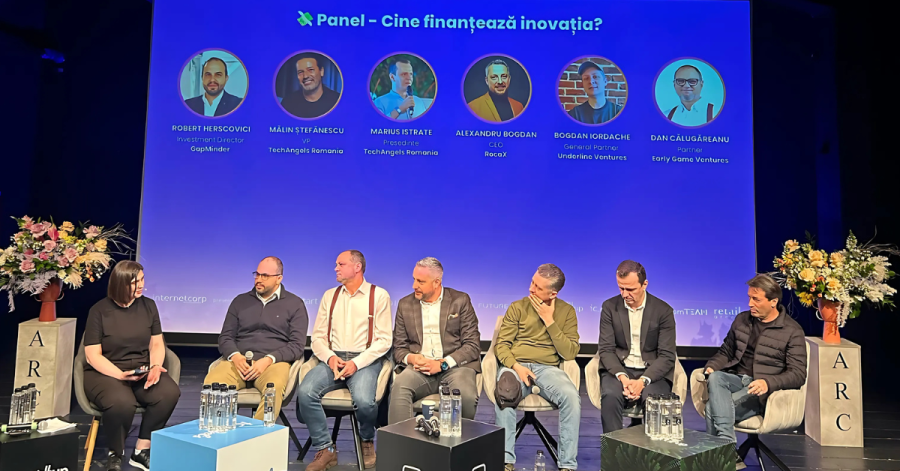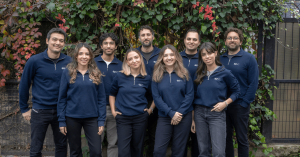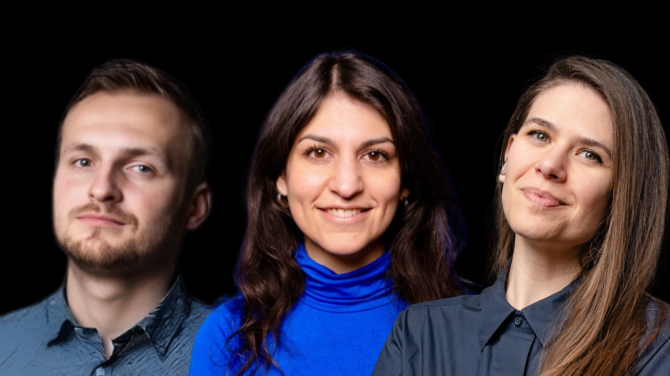The world feels tense. A potential US recession, ongoing war in Ukraine, political instability at home and abroad — these aren’t the kinds of headlines that encourage risk-taking. For startups in Romania, the environment in 2025 is anything but predictable.
But uncertainty doesn’t stop innovation. It just changes how investors think — and how founders must act.
It feels like déjà vu
Remember 2021, when a good pitch deck and some traction could get you a seed round in just a few weeks? That hasn’t been the case for a while. As 2025 began, things were starting to look better — investors were slowly coming back, and there was more hope in the air.
But that didn’t last. In just a few months, the mood changed again. With new uncertainty around the economy and global politics, funding has slowed once more. Startups are back to focusing on the basics: extending runway, keeping customers happy, and building steady revenue.
Robert Herscovici, Investment Director at GapMinder, has a clear message for founders:
“Startups should focus on cost management and churn management. It’s much harder to raise during a recession — VCs are focused on protecting their portfolios.”
VCs aren’t necessarily investing less overall — but they are investing differently. They’re slower, more cautious, and more focused on startups that can prove resilience, not just ambition.
The angels still fly — but not all of them
On a positive note, angel investors, who invest their own money and don’t answer to institutional backers, remain an important source of early capital. But even here, the mood is mixed.
Some are retreating, choosing to wait out the storm. Others are still looking for chances to get in early on the next wave of innovation — especially in sectors that have become strategic for Europe, like defense and space.
“There will always be investors who want to multiply their capital and be part of something meaningful,” says Marius Istrate, President of TechAngels. “But in uncertain times, we can expect some angels to have tighter pockets.”
And while caution is expected, Istrate is quick to remind founders: “It’s important to manage cashflow — but we shouldn’t cut too much from innovation.”
Dan Calugareanu, Partner at Early Game Ventures, adds that despite the challenging macroeconomic context, there’s still room for bold bets at the very start of a company’s journey.
“In early-stage, we’re still experimenting. With experience, you can afford to venture into pre-seed and seed — even now.”
A crisis on top of a crisis
For founders who launched during COVID, the current market is no news — only more complicated. Inflation, low consumer demand, and political instability are adding layers of pressure.
“Small companies feel it the most,” says Alexandru Bogdan, CEO of Roca X. “We’re coming out of one crisis into another, and people are still cautious. Many are just waiting to see what happens next.”
He also points out something many are hesitant to say out loud: it’s not just about raising capital. It’s about what comes after. “Markets are fragmented,” Bogdan explains.
“Scaling is harder now — we’re no longer thinking globally. Regions like China, Russia, even the US are more complicated because of tariffs and politics. So we’re not talking about a global population of 8 billion anymore.”
While many headlines focus on economic risks, some investors are more concerned about geopolitics.
“We’ll definitely have a recession in the US — and maybe that’s even intentional,” says Bogdan Iordache, General Partner at Underline Ventures. “But I don’t think it will shake the software space too much.”
What does worry him is the possibility of a larger military escalation.
“The elephant in the room is Ukraine. If things escalate into a broader conflict, the long-term impact could be far more serious than a US recession.”
Still, even here, some see opportunity. Strategic sectors like defense and space are suddenly high priorities for governments — and Europe, in particular, has both the talent and the need to lead in these areas.
What can we do in Romania?
Some in the ecosystem have asked whether Romania should build its own version of pan-European startup programs, similar to Project Europe. Most investors don’t see the need: local collaboration is already strong. What’s required now is more outward thinking.
“We don’t need a ‘Project Romania’,” says Malin Stefanescu, VP at TechAngels. “We’re already well-connected. We should be thinking about how we contribute to Project Europe, not how we create something separate.”
But that doesn’t mean Romania has all the right pieces in place. Alexandru Bogdan argues that while the private sector is doing its part, a national strategy for innovation is still missing.
“We need support from the government,” he says. “Without it, the ecosystem can’t grow fast enough. There’s too much pressure on the private side because institutional investors aren’t getting involved. Right now, the number of early-stage VCs is too small to build a truly healthy ecosystem.”
The pressure to raise funding can push founders to focus too much on investors and not enough on customers. That’s a mistake, says Bogdan Iordache.
“Too many founders optimize for investors instead of customers. That’s wrong,” he explains. “They spend more time figuring out how to convince us than how to solve a real problem.”
At the same time, being prepared and taking fundraising very seriously is still important advice. It looks like many founders still walk into pitch meetings without a clear understanding of the market they’re trying to enter.
“At TechAngels, 9 out of 10 founders who pitch us don’t know what’s happening in their market,” says Marius Istrate. “Founders need intelligence, ambition, and responsibility — not just a good idea.”
In a market like this, those who survive and grow will be the ones who get the basics right: know your customers, manage your money, and understand the space you’re operating in.








